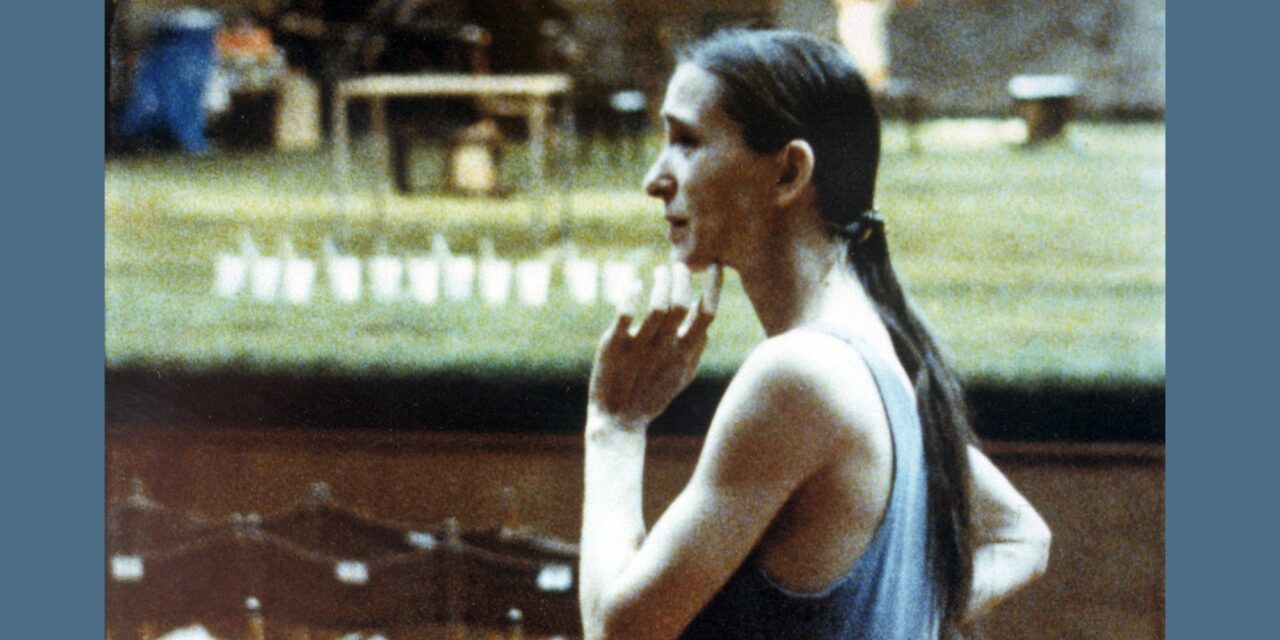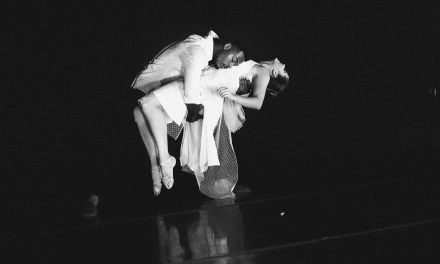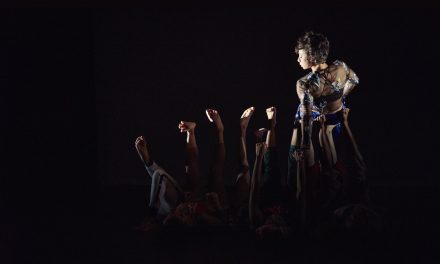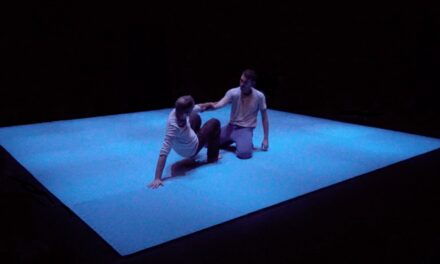Pina Bausch (1940-2009) began her professional dance education at the Folkwang School in Essen, Germany which was led by the renowned Kurt Jooss, most famous in the United States as the choreographer of The Green Table. He was also a pioneer of the revolutionary expressive dance movement known as Ausdruckstanz during the 1920s and ‘30s. Bausch studied in New York for two years at the Juilliard School, the New American Ballet, and at the Metropolitan Opera House Ballet but returned to Essen at the request of Jooss to become a soloist at the newly founded Folkwang Dance Studio. In Essen, she worked with Jooss, Anthony Tudor, Lucas Hoving, Hans Züllig, and Jean Cebron. It was in the late 1960s that Bausch first gained recognition as a choreographer. One dance that lead to this was her Im Wind der Zeit (in the wind of time), which won first prize at the Cologne choreography competition. Today, of course, Bausch is considered one of the leading choreographers of the 20th century.
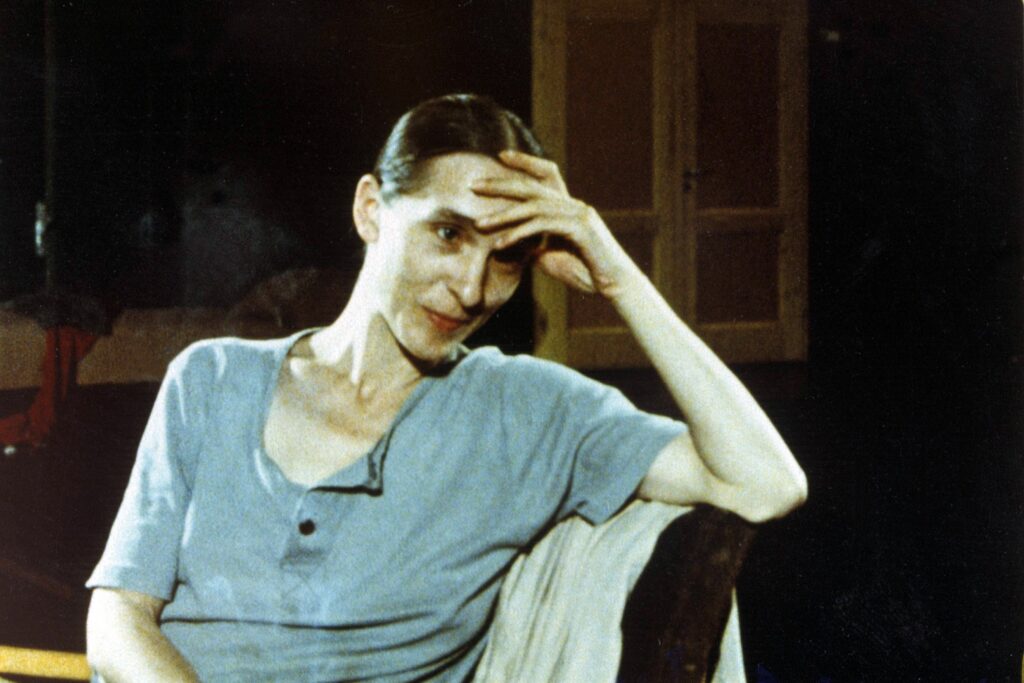
Pina Bausch – Screenshot from Chantal Akerman’s film “One Day Pina Asked” – Courtesy of Icarus Films and OVID.
In the OVID.tv’s dance collection, there is a wonderful film titled One Day Pina Asked (Icarus Films) which is the late award-winning filmmaker Chantal Akerman’s “…look at the work of choreographer Pina Bausch and her Wuppertal, Germany-based dance company.” Because of the manner in which it was filmed, the viewer begins to feel that she/he can feel the energy of the dancers, hear their breathing and even smell the cigarettes that Bausch and many other dancers smoke throughout the film.
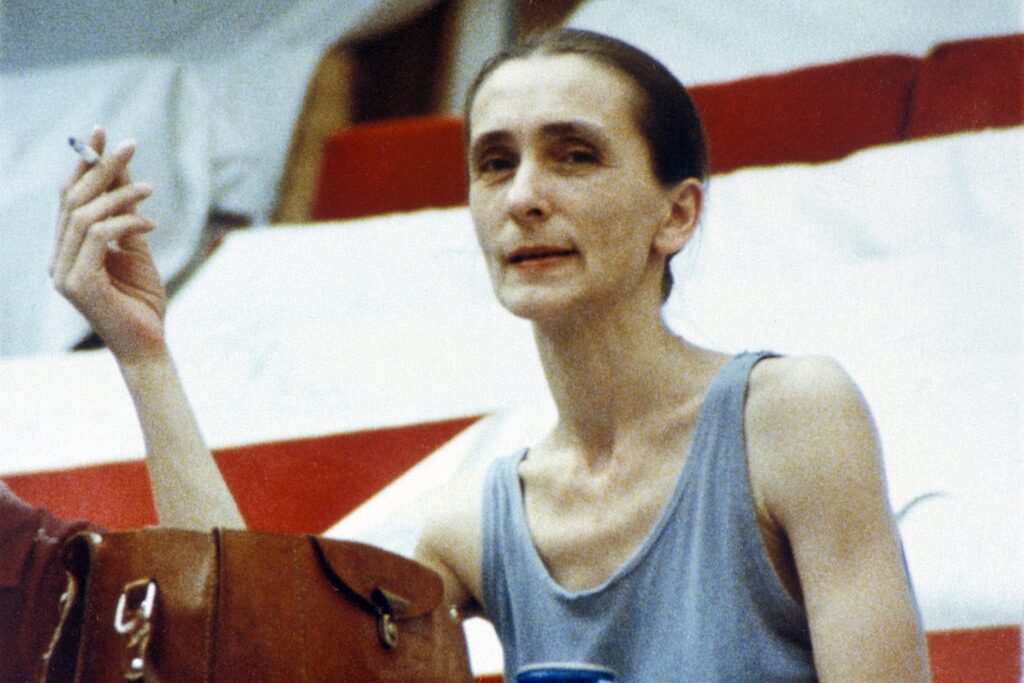
Pina Bausch – Screenshot from Chantal Akerman’s film “One Day Pina Asked” – Courtesy of Icarus Films and OVID.
The film’s title comes from a scene when a male dancer explains that one day Pina asked the company members “What comes to mind when you hear the word love?” Akerman films several of the responses.
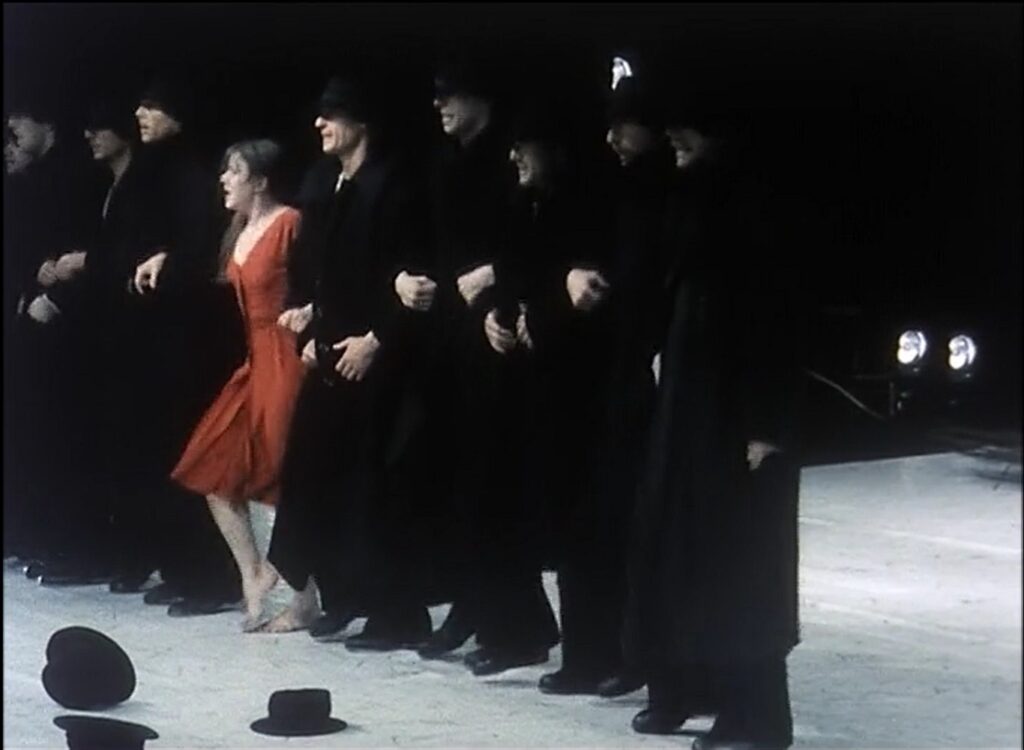
Screenshot from Chantal Akerman’s film “One Day Pina Asked: (1983) – Courtesy of Icarus Films and OVID.
Akerman followed the Wuppertal Tanztheater company for five weeks recording them in rehearsals, during breaks, while the dancers put on or refreshed their makeup, as well as during performances. One gets an up close feel of Bausch’s trademark intimate duets that are extremely repetitive and can often come across as combative, obsessive and even violent.
Also via Bausch’s use of repetition, she exposes how women are often mistreated or abused by men and how absurd humanity can appear when examined this way. In a run-through of one of her works there is a single woman with ten or twelve men dressed in long black coats and wearing black hats. The woman is trying to get a man who is dressed in all white to “Come dance with me.” The group of men in black lead the woman through a series of partnering while the one in white totally ignores her.
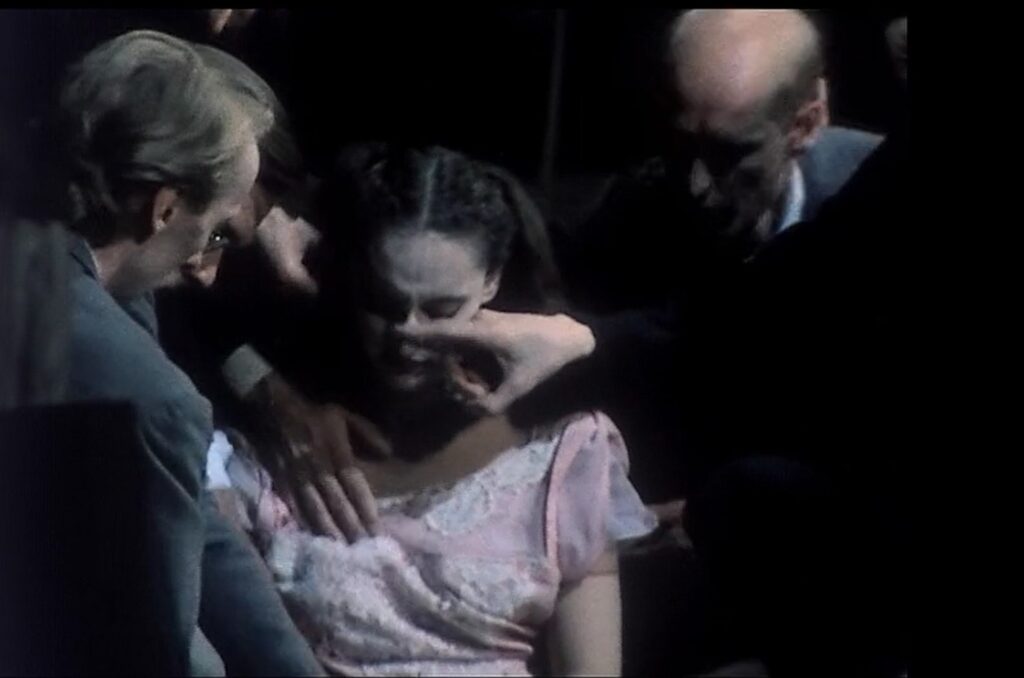
Screenshot from Chantal Akerman’s film “One Day Pina Asked” (1983) – Courtesy of Icarus Films and OVID.
Another scene finds a lone woman dressed in a beautiful gown amidst a group of men wearing dress suits. She cringes as they repeatedly pinch her cheek, nibble on her ear, brush her nose, kiss her hand, rub her stomach, against her hair and other very personal gestures as if it is their privilege to touch a woman in this manner. Here again, the camera’s close proximity to the action causes it to feel even creepier and abusive, as if it is the viewer who is the victim of the exploitation.
One Day Pina Asked is more than just a dance film. It is a tiny glimpse into the psyche of the choreographer as well as a look at why Bausch dances appear as scenes within a film.
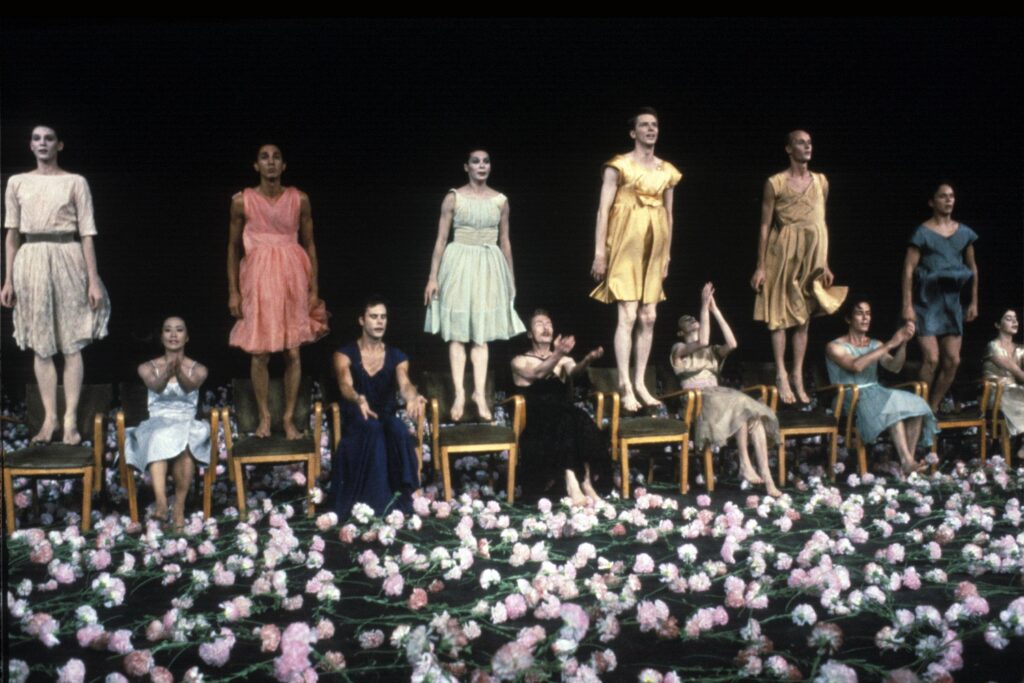
NELKEN (Carnations) by Pina Bausch – Screenshot from Chantal Akerman’s film “One Day Pina Asked” – Courtesy of Icarus Films and OVID.
The amazing dance artists in One Day Pina Asked included Jakob H. ANDERSEN, Anne-Marie BENATI, Bénédict BILLIET, Marion CITO, Joséphine Ann ENDICOTT, Lutz FOSTER, Mechthild GROSSMANN, Sylvie HOPF-KESSELHEIM, Kyomi ICHIDA, Urs KAUFMANN, Ed KORTLANDT, Béatrice LIBONATI, Mélanie LIEN, Elena MAJNONI, Anne MARTIN, Dominique MERCY, Jan MINARIK, Nazareth PANADERO, Héléna PIKON, Hans POP, Arthur ROSENFELD, Monica SAGON, Jean-Laurent SASPORTES, Janusz SUBICZ, AND Francis VIET.
Excerpts of Pina Bausch’s works included KOMM TANZ MIT MIR (Come Dance With Me) (1977), KONTACTOHF (Contact Area) (1978), 1980 EIN STUECK (One Piece), WALZER (1982), and NELKEN (Carnations) (1983).
For more information about OVID and its dance collection, please visit their website.
Written by Jeff Slayton for LA Dance Chronicle.
Featured image: Pina Bausch – Screenshot from Chantal Akerman’s film “One Day Pina Asked” – Courtesy of Icarus Films and OVID.

